Brailsford insists Team Sky is '100 per cent a clean operation'
Boss offers to change team's TUE policy in wake of Wiggins revelation
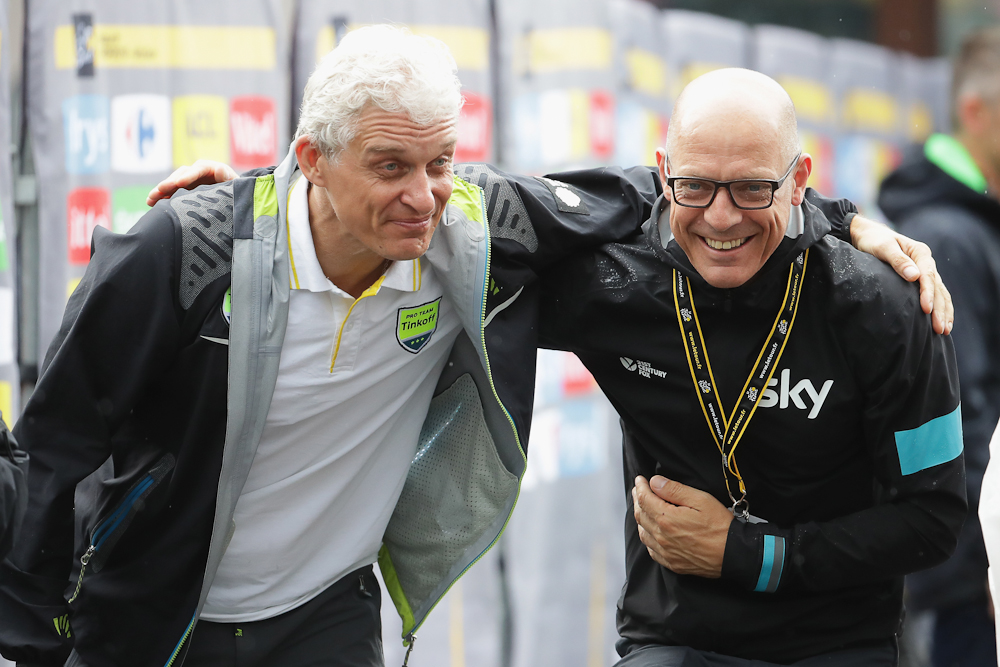
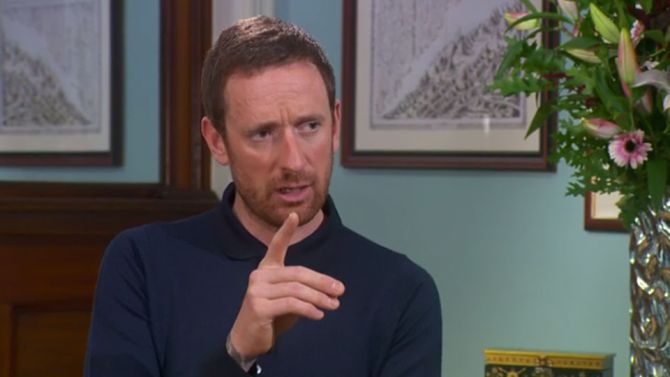
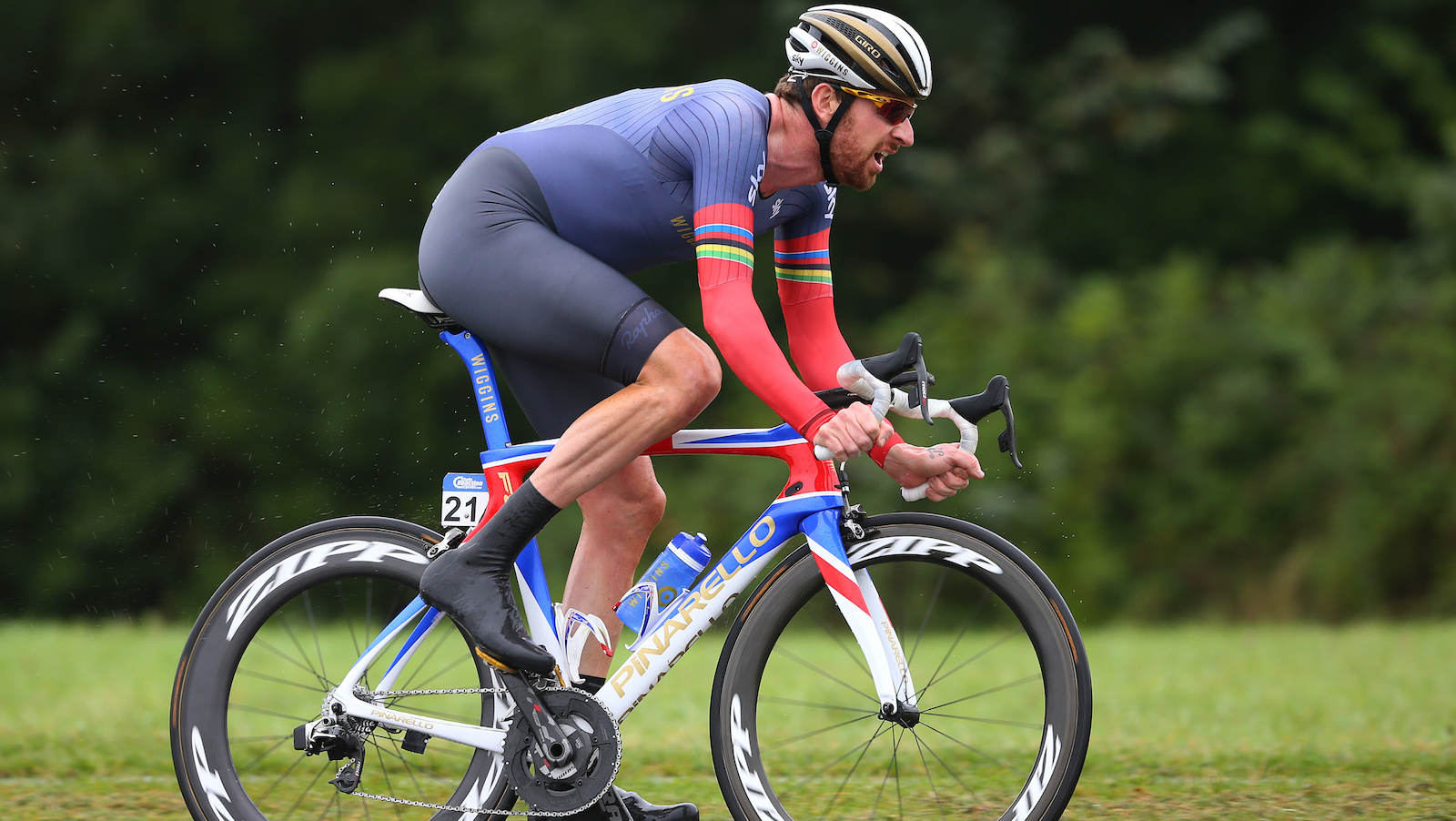
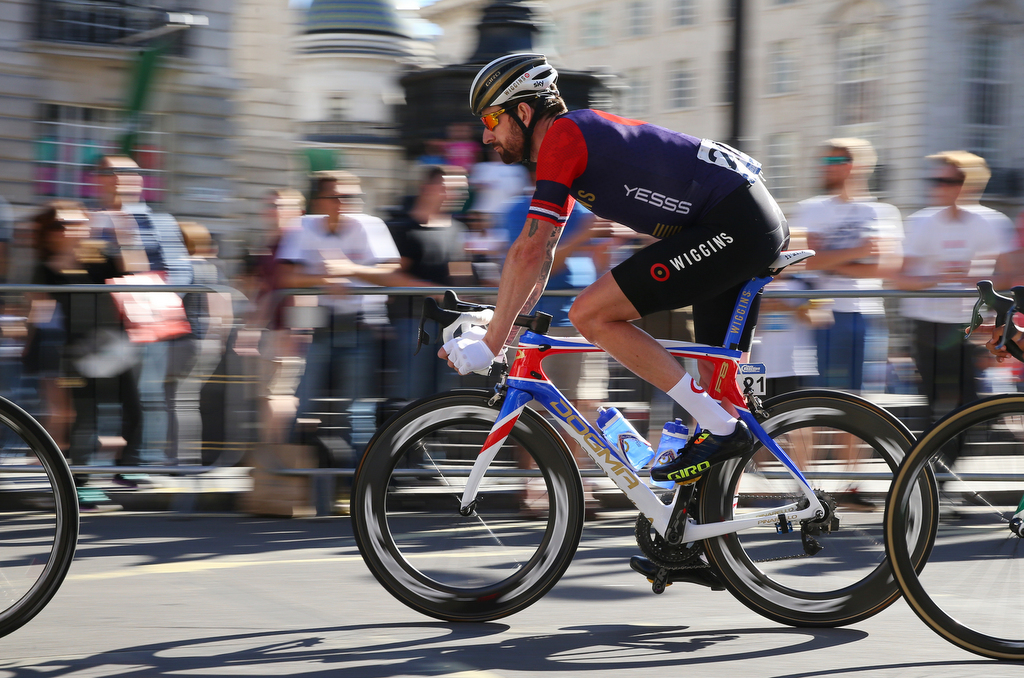
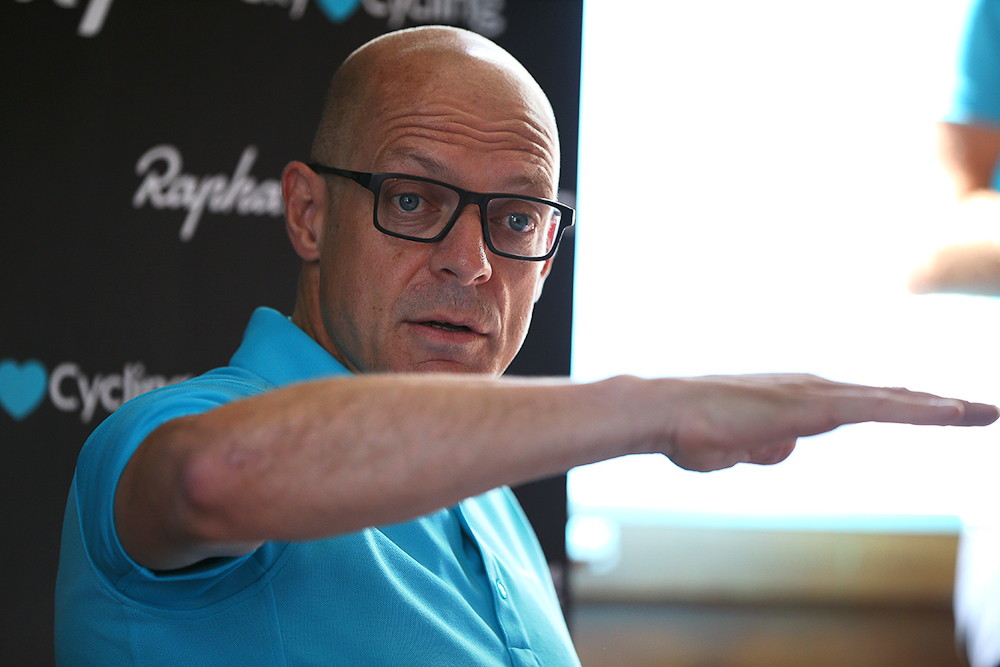
Dave Brailsford has told Sky News that Team Sky is '100 per cent a clean operation' and that Bradley Wiggins' career should not be tarnished after it was revealed that he was allowed to take the powerful corticosteroid triamcinolone acetonide in the build up to three major races.
Pursuit of Tour de France glory costs Team Sky their idealism
Wiggins' TUE under scrutiny before Sunday morning interview
Wiggins says he didn't take triamcinolone to gain an unfair advantage
Tom Dumoulin says Wiggins' TUE case stinks
The Sound of Silence: Brailsford, Sky and the questions still to be answered
Wiggins, who had approved Therapeutic Use Exemptions (TUEs) for the drug in order to cope with allergies, has already argued that he needed the substance in order to 'level the playing field' but he and his team have been criticised over their lack of transparency, with questions asked over whether the team abused the TUE system.
Since the hack group Fancy Bears leaked the TUE history of Wiggins, Chris Froome and several other athletes, Brailsford and Team Sky have refrained from answering questions. Brailsford broke his silence on Monday, telling Sky News, "Abuse is the key word. People have abused it in the past.
"But the question was, is there a genuine medical need? And given the process and the integrity of the process - there was a doctor and authorities who approved this - I didn't see any need to question this. I felt I could trust it.
"What I can tell everybody is that we are doing it the right way. It is 100 per cent a clean operation, we always look at the right thing to do and have policies and process to make sure that we perform in the right way and people can believe in us."
- Brailsford, Sky and the questions still to be answered
- Pursuit of Tour de France glory costs Team Sky their idealism
- Millar says Wiggins' TUE drugs should be banned
Wiggins has faced criticism since the news of his TUE use first broke. He has not broken any rules within the legality of the WADA code and Brailsford added that the former Tour de France winner's reputation should not be ruined.
Get The Leadout Newsletter
The latest race content, interviews, features, reviews and expert buying guides, direct to your inbox!
"I hope not, he is a remarkable athlete who has achieved so much in his career and as you can see from his records he has not been a systematic abuse of TUEs, he has had very, very few. It would be very unfair to allow them to tarnish his career."
A change of policy on TUEs
Despite offering a staunch defence of his team's practice's and ethical spirit, Brailsford said he would change the team's policy to make all future TUE's public.
Sky's stance on the increasingly vexing subject has historically been a murky one. On the one hand, psychologist Steve Peters once said it was a policy not to use TUE's, a statement that has been contradicted by doctor Alan Farrell. In any case, the team has made use of them on 13 occasions in its near seven-year history, including three for Wiggins and two for Chris Froome, with the latter deciding against an application at the 2015 Tour de France after the controversy caused by his hastily-granted permission for prednisolone at the 2014 Tour de Romandie.
Until now, TUE information has been kept from the public on the grounds of medical confidentiality.
"We've reviewed this over the years as we've moved forward. We have changed our policy, we've changed the way we do it, and in the future going forward, I think we're going to take the next step, which has been debated on a wider basis across the whole of the TUE process, and look at having the consent of the riders to make all TUEs transparent,” Brailsford told Sky News.
“However, I think we should also note that this a very very infrequent occurrence,” he added. “We've had 13 TUEs across our entire time as Team Sky.”
Read the full transcript
Sky Sports News: Did you approve the Bradley Wiggins TUEs that have been discussed recently?
Dave Brailsford: Well, I didn't have the right to approve any TUE. I think what we've got to remember here is that the only people who can approve a TUE are the doping authorities. You go to a specialist and the specialist is going to go 'Yes, this is appropriate' or 'I've inspected you and this isn't appropriate and will recommend this course of medication.' That then goes to the authorities for another examination if you like, in terms of the appropriate use, and that comes back. In that sense, you have a confidence around the process.
SSN: Did you have any reservations about the substance that was being prescribed, given it's controversial, it's been abused in the past, it's got a performance-enhancing capacity according to many… Did you not have any reservations about that?
DB: Well, I think abuse is the key word. People have abused it in the past and I think the question about athlete's welfare is 'is there a genuine need for a substance that is on the prohibited list, that you can get an exemption for to address the medical need.' Given the process and the integrity of the process and the trust I have in that process, I felt there was a consultant who recommended this, a doctor who recommended this. The authorities said yes, we agree that this is an appropriate course of action so I didn't see any need to question that process as I felt I could trust it.
What we're coming to here is a question about transparency really. Because on one hand you've people who would like to know what's going on, against this question of medical confidentiality and the right of an individual to have a medical situation kept in confidence, and I think there's a balance. We've reviewed this over the years as we've moved forward. We have changed our policy, we've changed the way we do it, and in the future going forward, I think we're going to take the next step, which has been debated on a wider basis across the whole of the TUE process, and look at having the consent of the riders to make all TUEs transparent.
SSN: So you'll publish TUEs, make that available, if the rider gives consent ahead of racing?
DB: Absolutely.
SSN: Might you consider not using them at all? Withdrawing riders who need them.
DB: Well, that's definitely part of the debate, you know. You ask yourself the question: if a rider or an athlete needs a TUE, I think you either make it public so everybody knows this rider has a TUE and you compete, or you don't compete. And I think that's the way this whole debate is heading. These records are meant to be confidential, but they're not. So you're pretty much certain that any TUE in the future, whether in racing or out of racing, will at some point in time, come out. It will be made public. And I think we've got to address that in order to gain public trust so people can see that we are transparent and doing it the right way. We're reviewing our policy going forward to make sure that all of the rider consent and then we can publish our TUEs.
SSN: No rules have been broken, but the main criticism here is about an ethical choice made by Team Sky. You've always been very clear that the ambition was to win clean. What do you say to those you say you have bent that ethical position?
DB: I'm not going to agree with that, that's for sure. I've spent a long time making sure that we've set up a team in what is a difficult sport that's had a difficult past, to give riders opportunity to be in a team where they can absolutely do it the right way. There will never be an athlete in this team who is encouraged or even suggested to do anything outside of the rules, that's just not going to happen. You can ask any rider on this team, past or present, whether he's ever had a discussion with me about doping and the answer is no, I would never ever and never have had those types of discussions with them, and I won't, because the whole of essence of what I've dedicated my life to is to try to create an environment where you can perform to the best of your ability clean.
SSN: With hindsight do you regret having gone down this road with Bradley Wiggins' TUEs?
DB: Well, I think it's very easy to look back with hindsight like you say, but the reality is that you make a decision with the information you have at the time. You are in that place at that time with the information you have in front of you. And what I had was an independent expert, who said 'This is the medication I fee is appropriate. This medication has been tried and I feel it's not effective, therefore we feel that this is appropriate.'
At that moment in time, would I make the same decision again, given that the authorities said 'Yes, this is ok'? I would make the same decision again. I'm sure I would.
SSN: Bradley Wiggins will retire soon. Any concern that the exposure of these TUEs will taint what is a remarkable sporting record?
DB: I hope not, I hope not. Because he's a remarkable athlete who has achieved so much in his career. As everybody can see from his record, this isn't a systematic abuse of TUEs. He's had very, very few so I think it would be very, very unfair to allow all of that to tarnish his career. He just doesn't deserve that.